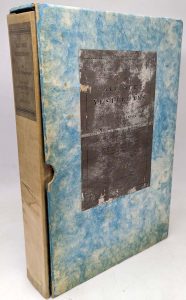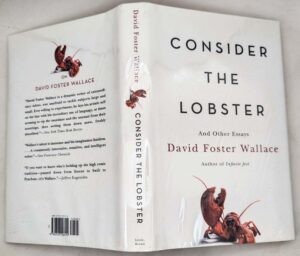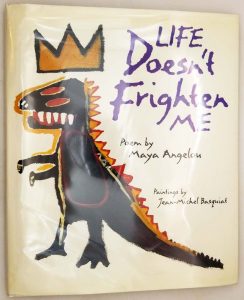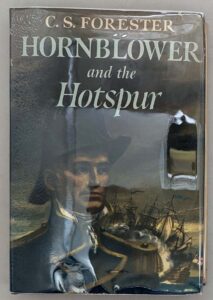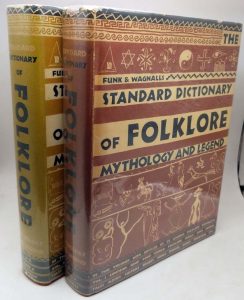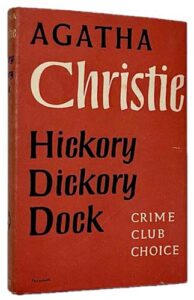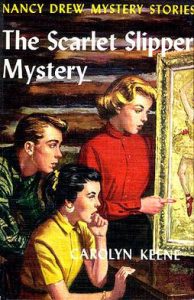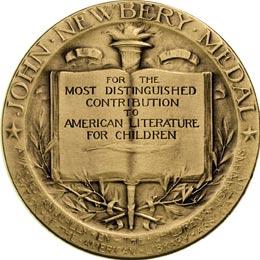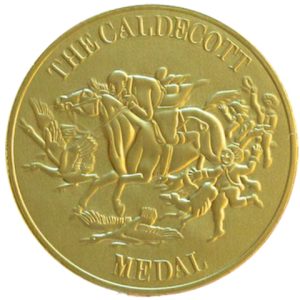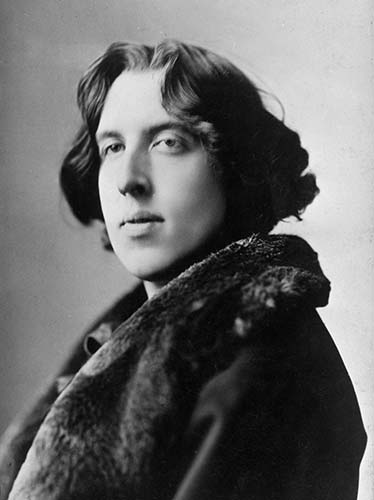
Oscar Fingal O’Flahertie Wills Wilde (1854 – 1900) was an Irish poet and playwright. After writing in different forms throughout the 1880s, he became one of the most popular playwrights in London in the early 1890s. He is best remembered for his epigrams and plays, his novel The Picture of Dorian Gray, and the circumstances of his criminal conviction for gross indecency for consensual homosexual acts in “one of the first celebrity trials”, imprisonment, and early death from meningitis at age 46.
As a spokesman for aestheticism, he tried his hand at various literary activities: he published a book of poems, lectured in the United States and Canada on the new “English Renaissance in Art” and interior decoration, and then returned to London where he worked prolifically as a journalist. Known for his biting wit, flamboyant dress and glittering conversational skill, Wilde became one of the best-known personalities of his day. At the turn of the 1890s, he refined his ideas about the supremacy of art in a series of dialogues and essays, and incorporated themes of decadence, duplicity, and beauty into what would be his only novel, The Picture of Dorian Gray (1890). The opportunity to construct aesthetic details precisely, and combine them with larger social themes, drew Wilde to write drama. He wrote Salome (1891) in French while in Paris but it was refused a licence for England due to an absolute prohibition on the portrayal of Biblical subjects on the English stage. Unperturbed, Wilde produced four society comedies in the early 1890s, which made him one of the most successful playwrights of late-Victorian London.
At the height of his fame and success, while The Importance of Being Earnest (1895) was still being performed in London, Wilde prosecuted the Marquess of Queensberry for criminal libel. The Marquess was the father of Wilde’s lover, Lord Alfred Douglas. The libel trial unearthed evidence that caused Wilde to drop his charges and led to his own arrest and trial for gross indecency with men. After two more trials he was convicted and sentenced to two years’ hard labour, the maximum penalty, and was jailed from 1895 to 1897. During his last year in prison, he wrote De Profundis (published posthumously in 1905), a long letter which discusses his spiritual journey through his trials, forming a dark counterpoint to his earlier philosophy of pleasure. On his release, he left immediately for France, and never returned to Ireland or Britain. There he wrote his last work, The Ballad of Reading Gaol (1898), a long poem commemorating the harsh rhythms of prison life.
In 2017, Oscar Wilde was among an estimated 50,000 men who were pardoned for homosexual acts that were no longer considered offences under the Policing and Crime Act 2017 (homosexuality was decriminalised in England and Wales in 1967). The 2017 Act implements what is known informally as the Alan Turing law.
Oscar Wilde – First Editions Identification Guide
| Year | Title | Publisher | First edition/printing identification points |
|---|---|---|---|
| 1878 | Ravenna | Oxford: Thos. Shrimpton & Son, 1878 | First edition. Pamphlet, grey paper wrappers printed in black. On the front the lettering of the title-page (with a smaller design of the University arm') is printed within a single-line border with floriated points. On both sides of the back of the wrapper are lists of the winners of the Newdigate Prize Poem (1840 to 1877) and the Gaisford Prize for Greek Prose (1857 to 1876), with the publishers’ imprint at the foot. |
| 1880 | Vera; or, the Nihilists | London: Ranken & Co, 1880 | First edition. Grey paper wrappers with the lettering of the title page printed within a double-ruled border, above which is [Strictly Private.], all printed in black. 52 copies printed. Note: Only two copies of this edition are known. ALSO: No publisher, printed in America, where Wilde was lecturing during the greater part of 1882. Grey paper wrappers with the lettering of the title page printed within a double-ruled border, above which is [Strictly Private.], all printed in black. Notes: In this edition the Prologue, pp. [5-11], is printed for the first time, and the text throughout shows many variations from the edition of 1880. The reverse of pp. 10 and 59 is blank. |
| 1881 | Poems | London: David Bogue, 1881 | First edition. Covers of white parchment lettered on the back Poems | Oscar Wilde | at the top and David Bogue at the foot, the intervening space being filled with a design in gilt of a prunus blossom. In the top outer corner of each cover is stamped in gilt a similar design within a rectangle. Dutch hand-made paper, watermarked Van Gelder; top edges gilt, others uncut. Notes: The first printing (June 1881) consisted of 750 copies, of which only 250 copies were used for the first edition, the remaining 500 being equally divided between the second and third editions. ALSO: London: David Bogue, 1881. Second edition. "Second Edition" stated on title page. Same as above. The prunus blossom design on the sides is larger than in the first edition. ALSO: London: David Bogue, 1881. Third edition. "Third Edition" stated on the title page. For this edition a printing of 250 copies of a new title-page [pp. iii-iv] was made on September 26, the remainder of the book being part of the first printing in June. ALSO: Boston: Roberts Brothers, 1881. First American edition. ALSO: Elkin Mathews & John Lane, 1892. Author's edition. Limited to 220 numbered copies. Pale violet cloth boards with gilt lettering and designs and decorated end-papers, all by Charles Ricketts. Green, yellow or brown cloth, gilt, lettered; decorated end-papers. |
| 1883 | The Dutchess pf Padua | Privately Printed as Manuscript. | First edition. Grey-green paper wrappers without any lettering. There is no headline to the pages, the name of the play appearing only on the title-page (where the words Duchess of Padua and Oscar Wilde are printed in red) and on the last page of text.Twenty copies for use in the theatre are said to have been printed, of which only four are known to exist. |
| 1888 | The Happy Prince and Other Tales | London: David Nutt, 1888 | First edition. Japanese vellum boards, on the front side being a design in black by Jacomb Hood and red text. Illustrated by Walter Crane and Jacomb Hood. Two issues, no priority:
ALSO: Boston: Robets Brothers, 1888. First American edition. Blue-green or yellow cloth boards, with coloured decorated end-papers. |
| 1891 | Lord Arthur Savile's Crime and Other Stories | London: James R. Osgood, McIlvaine & Co, 1891 | First edition. Salmon-coloured paper boards printed in dark red with lettering and design by Charles Ricketts. Note: Of this edition 2000 copies were printed, including 500 which were issued in America with the imprint of Dodd, Mead and Co., New York. ALSO: Dodd, Mead and Co., New York, 1891. Pale pink buckram boards, lettered in dark green, with decorations in dark green and yellow. |
| 1891 | A House of Pomegranates | James R. Osgood, London, MDCCCXCI | First edition. Cream-coloured linen boards with moss-green linen back. The front side is printed in light red and stamped with gilt designs of a peacock, a running fountain and a basket of split pomegranates. On the back are some small designs with the title, etc., in twelve lines; the designs, lettering and decorated end-papers all being by Charles Ricketts. Note: Of this edition 1000 copies were printed. Some of these were issued in America by Dodd, Mead and Co. early in 1892, price $5.00. |
| 1891 | Intentions | James R. Osgood, London, MDCCCXCI | First edition. Moss-green cloth boards, on the front side being the titles of the four essays with a design below. On the back is the title of the book with the names of the author and the publishers in six lines, all stamped in gilt from designs by Charles Ricketts. Note: Of this edition 1500 copies were printed, including 600 which were issued in America with the imprint of Dodd, Mead and Co., New York. ALSO: Dodd, Mead and Co., New York, MDCCCXCI. First American edition. Pink canvas boards. ALSO: Osgood, McIlvaine, MDCCCXCIV. Second edition. Light green cloth boards with lettering and design by Charles Ricketts as in the first edition. Note: Of this edition 1000 copies were printed, including 500 which were issued in America with the imprint of Dodd, Mead and Co., New York. ALSO: Dodd, Mead and Co., New York, MDCCCXCIV. Yellow buckram boards, lettered in brown on the front side with the title, etc., in six lines as on the title-page. |
| 1891 | The Picture of Dorian Gray | Ward Lock & Co, London, [1891] | First edition. Rough grey bevelled boards, gilt lettered, boards designed by Charles Ricketts. Buff-coloured outer wrappers with the designs and lettering printed in brown. On p. 208, eight lines from the bottom, is a small misprint, the first letter being dropped from the word “ and.” Two issues, no priority:
ALSO: Paris: Charles Carrington, 1901. Light blue boards, gilt, lettered on the back DORIAN GREY (sic) |
| 1893 | Lady Windermere's Fan | London: Elkin Mathews & John Lane, 1893 | First edition. "Copyright, October 1893" stated on © page. Light brown-red linen boards, gilt lettering, boards designed by Charles Shannon. 500 copies printed. |
| 1893 | Salome | Londres: Elkin Mathews et John Lane, 1893 | First edition. "Acheve d’imprimer le 6 fevrier 1893" stated on © page. First published in French. Bright purple paper wrappers lettered in silver. Two issues, no priority:
|
| 1894 | A Woman of No Importance | London: Elkin Mathews & John Lane, MDCCCXCIV | First edition. Two issues, no priority:
|
| 1894 | The Sphinx | London: Elkin Mathews & John Lane, MDCCCXCIV | First edition. Full vellum boards, gilt, with designs on the back and on both sides by Charles Ricketts, whose monogram CR appears in the bottom left-hand corner of the front cover, in the bottom left-hand corner of the under cover being the monogram of the binders, Leighton, Son and Hodge. Two issues, no priority:
|
| 1895 | The Soul of Man under Socialism | London: Privately Printed, MDCCCXCV | First edition. Light brown paper wrappers printed on the front side only, with lettering and designs of the title-page in red. Limited edition of 50 copies. |
| 1898 | The Ballad of Reading Gaol | London: Leonard Smithers, MDCCCXCVIII | First edition. "Copyright January 1898" stated on © page. Cinnamon colour linen with white linen back. Two issues, no priority:
ALSO: Third edition. "Copyright February 1898" on the limitation page. Purple linen with white linen back lettered as in the earlier editions. In the top right-hand corner of the front side is a leaf-design by Charles Ricketts, stamped in gilt. Limited to 99 numbered copies signed by the author. |
| 1899 | An Ideal Husband | London: Leonard Smithers, MDCCCXCIX | First edition. "Copyright, July 1899." stated on © page. Light brown-red linen boards, gilt lettering, with designs by Charles Shannon. Two issues, no priority:
|
| 1899 | The Importance of Being Earnest | London: Leonard Smithers, MDCCCXCIX | First edition. "Copyright, December 1898" stated on © page. Light red-brown linen boards, gilt lettering, with designs by Charles Shannon. Three issues, no priority:
|
| 1905 | De Profundis | London: Methuen & Co, [1905] | First edition. "First published in 1905" stated on © page. Three issues, no priority:
ALSO: New York: The Knickerbocker Press, 1905. First American edition. Grey paper boards, gilt, with dark blue linen back, on which is pasted a strip of grey paper, showing a dark blue edging on either side, lettered in Old English characters. Issued with a loose outer wrapper of grey paper printed in dark blue, on the back being a publisher’s advertisement. |
Reference:
- Wikipedia
- Bibliography of Oscar Wilde, Stuart Mason
